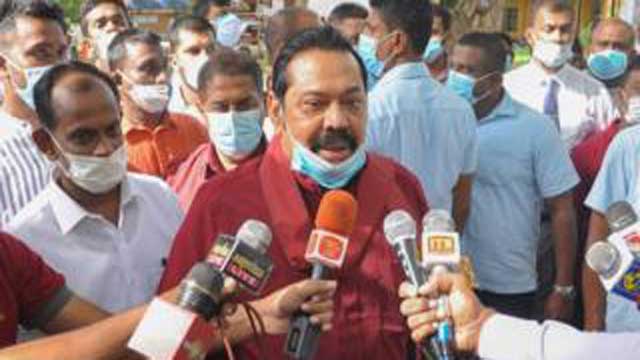Sri Lanka’s powerful Rajapaksa brothers won a majority in the country's Parliamentary election, securing their dynastic rule.
Election Commission results, released on Friday, showed the Rajapaksas’ Sri Lanka People’s Front bagged 128 out of the total 196 seats while its main opponent had obtained only 47 seats, reports AP.
Sri Lanka's parliament has 225 seats, of which 196 members are directly elected while 29 are named from a national list according to the number of votes received by each party or independent group.
“Sri Lanka People’s Front has secured a resounding victory according to official results released so far,” Gotabaya Rajapaksa tweeted. “It is by belief that that the expectation to have a Parliament that will enable the implementation of my ‘vision for prosperity’ policy will be reality tomorrow.”
Prime Minister Mahinda Rajapaksa is most likely to be sworn-in the same position by his younger brother, President Gotabaya Rajapaksa.
The election results could enable them to change the constitution and strengthen dynastic rule. The Rajapaksas’ party will get more seats from the national list, which will be announced later Friday.
The brothers need 150 seats or control of two-thirds of seats in Parliament to be able to change the constitution.
Analysts say any attempt by Gotabaya to push for changes that will strengthen presidential power at the expense of those of the prime minister may trigger sibling rivalry.
Sri Lanka had been ruled by powerful executive presidents since 1978. But a 2015 constitutional amendment strengthened Parliament and the prime minister and put independent commissions in charge of judiciary appointments, police, public services and conducting elections.
Gotabaya was elected president last November after projecting himself as the only leader who could secure the country after the bombings of churches and hotels on Easter Sunday that killed 269 people.
Since then, he said he had to function under many restrictions because of the constitutional changes.
However, Mahinda Rajapaksa is unlikely to cede his powers that might shrink his influence as he works on promoting his son Namal as his heir. Namal and three other members of the Rajapaksa family contested the election and are likely to control key functions in the new administration.
The landslide victory also raises fears of weakening government institutions such as independent commissions for elections, police and public service.
Votes were counted Thursday after the election on Wednesday, which was held under an election commission that emphasised following health guidelines to prevent the spread of coronavirus.
More than 70 percent of the country's over 16 million eligible voters cast ballots.
The election was originally scheduled for April, but was twice postponed because of the pandemic.
Sri Lanka has largely contained the spread of the virus with 2,839 confirmed cases, including 11 deaths.
United States on Friday congratulated Sri Lanka for holding the election “in a peaceful and orderly manner despite the challenges posed by the COVID-19 pandemic."
“As the new parliament convenes, we hope the government will renew its commitments to building an inclusive economic recovery, upholding human rights and the rule of law, and protecting the country’s sovereignty. We look forward to partnering with the government and new parliament,” the US Embassy in Colombo said in a statement.





